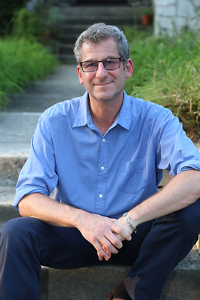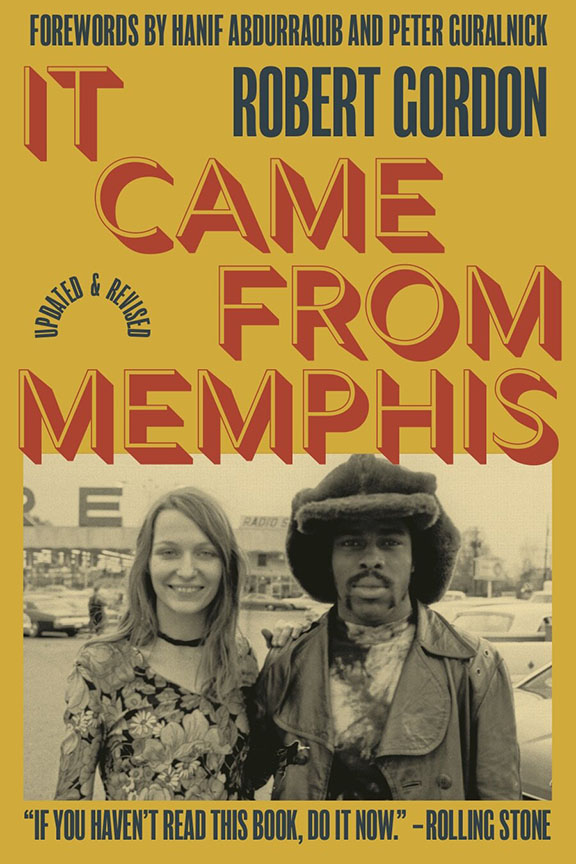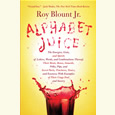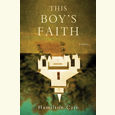Beneath All the Sex and Violence
Eric Jerome Dickey talks with Chapter 16 about the hard work that goes into his stylish thrillers
You might say Memphis native Eric Jerome Dickey took the scenic route to becoming a novelist. After receiving a computer-systems degree at the University of Memphis in 1983, he headed to Los Angeles for a job in the aerospace industry, but before long he was pursuing acting and doing stand-up comedy.
Writing material for his comedy act ultimately led him to try his hand at fiction. His first short story was published in 1994, and after three years of rejection, his first novel, Sister, Sister, made it to the marketplace in 1996. More than a dozen subsequent books, including Dying for Revenge, Pleasure and Resurrecting Midnight, have garnered him a loyal following and frequent appearances on The New York Times bestseller list. Dickey’s novels usually combine gritty crime drama with plenty of explicit erotic action. His Gideon series centers on a professional hit man with a busy sex life, and this energetic combination of murder and lust seems to be irresistible to readers of both sexes. Dickey’s latest book, Tempted by Trouble, features a different criminal protagonist, Dmytryk Knight, an unemployed autoworker who embarks on a new career as a bank robber.
This month Dickey will be returning to his home state for book signings in Memphis and Nashville. He answered questions from Chapter 16 via email in anticipation of his visit.
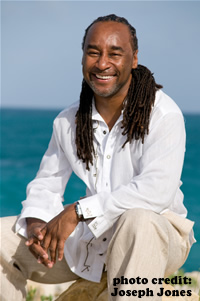 Chapter 16: Your work is set in a variety of locations, and you’ve said in earlier interviews that “each place is a character.” How do you go about choosing and researching locations? Are there particular places you hope to use as settings in future novels?
Chapter 16: Your work is set in a variety of locations, and you’ve said in earlier interviews that “each place is a character.” How do you go about choosing and researching locations? Are there particular places you hope to use as settings in future novels?
Dickey: Some locations have been random. I had an early morning flight out of Birmingham one year, and the driver mentioned that he was from Odenville. I’d never heard of the city, but the name stuck with me, and when I began working on Genevieve, I decided that Odenville would be her place of birth. I packed up, flew to Atlanta and made that drive, moved into a hotel and did the research. Gideon is international, so I’ve basically thrown a dart on a map, grabbed my passport and headed to the spots I’ve used in the novels. I have to be there to make it work. The UK, Antigua, Amsterdam, Argentina—every location is different, its own character, has its own politics, its own history and different relationships with the U.S.A. It was interesting being in other countries and seeing how they view the U.S.A. Very interesting and at times frightening.
Chapter 16: You have a huge fan base. Do you write with them in mind? Is there anything you’ve written in response to fan feedback?
Dickey: Not at all. It’s all about the character and remaining focused as a writer. It can be a dangerous thing when the tail wags the dog. Nor should a writer work imagining a thousand eyes peeping over his or her shoulder. Remain true to the story and the characters.
Chapter 16: Your books are lively and fast, and a lot of fun to read. Do you have fun writing them?
Dickey: That’s always great to hear. But it’s all work. There are good writing days. Days where things flow. But there are a lot of days spent frustrated and staring at the PC hoping to get beyond that brick wall some call Writers’ Block. The reader isn’t supposed to see the effort, the rewrites, the character changes, or feel the technical aspects—the orchestration and deliberate pacing, the dissemination of information that occurs during the tale. The fun part is for the reader: reading. We build cars that others enjoy riding. (Yeah, I had to go Detroit on you.!)
Chapter 16: What do you read for pleasure? Who are your own favorite writers?
Dickey: I just finished Little Children and I have The Reader on the top of my desk, that wonderful novel resting next to Casi Rubia, both in paperback. On my spanking brand new iPad I have Minion, The Glass Rainbow, Mixed Blood,Wake Up Dead, and Still Missing.
Chapter 16: You were trained as an engineer and pursued acting and stand-up comedy. When and why did you turn to writing?
Dickey: I attended the University of Memphis, and upon graduation I hopped in my Ford and drove to L.A. For the better part of a decade I worked at an aerospace company, and at the same time I auditioned and participated in the production of student films at every college and university in the Los Angeles area, and during that same era, almost every night I was in some smoky bar standing underneath bad lighting, using a crappy sound system, as my act competed with both the scream of blenders making drinks and alcoholics yelling at their friends. I didn’t “turn to” writing. It was a natural evolution. Comedy is writing. Engineering is logic as well as writing. (Each novel has a logical progression, else it makes no sense.) Acting is being involved with writers, with scripts and screenplays, taking what is given and creating characters. I’ve never left any of those occupations.
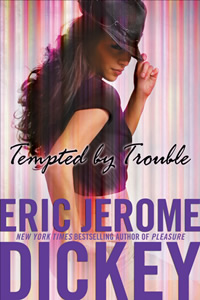 What I understand is education and studying any craft. When I say that I was an engineer, no one asks if I studied; they ask where. Since I’ve been a novelist, very few ask about how they can learn to write, only when they can get published. For comedy, I studied. For acting, I studied. For writing, I went to U.C.L.A. and studied. I went back to the basics. I practiced writing short stories. I sat in classes on how to write mystery, better dialogue, anything that was available at the time. I took critique. I studied. Even those that I’ve met (in any field) who have natural talent still have to put in the work to achieve excellence. And discipline is a big part of it. So, from having a few great years as an engineer to being on stage in some form, I use everything that I’ve ever learned as I work on any given novel.
What I understand is education and studying any craft. When I say that I was an engineer, no one asks if I studied; they ask where. Since I’ve been a novelist, very few ask about how they can learn to write, only when they can get published. For comedy, I studied. For acting, I studied. For writing, I went to U.C.L.A. and studied. I went back to the basics. I practiced writing short stories. I sat in classes on how to write mystery, better dialogue, anything that was available at the time. I took critique. I studied. Even those that I’ve met (in any field) who have natural talent still have to put in the work to achieve excellence. And discipline is a big part of it. So, from having a few great years as an engineer to being on stage in some form, I use everything that I’ve ever learned as I work on any given novel.
Chapter 16: Dmytryk, the protagonist in Tempted by Trouble, is a very dark, complicated personality, but ultimately a sympathetic one. Your recurring character Gideon is a ruthless hit man, but readers love him. What draws you to these morally compromised characters, and why do you think your audience responds so strongly to them?
Dickey: I have no idea what draws me to these characters; maybe it’s because I’m not interested in trying to write the same types of characters that many others write about. Every writer has to find his or her own voice. Everyone wants to travel in his or her own lane. I tend to write the types of characters that I like, complicated and put upon, ones living in the richness of gray areas. Well, some are in very dark-gray areas.
What a reader responds to and why—it makes no sense to me. I write as a writer and only the comments that come to me on some technical level actually make sense. Being in love with a character that doesn’t exist makes as much sense to me as people dressing up at Star Trek conventions and speaking Klingon better than they do English.
I’d hope it would be for the writing, the twists, basically the work that I have put into creating the characters and the conflicts that drive each novel from opening to closing. I’d hope. But the real world is not a writing class at U.C.L.A. The type of characters that readers are drawn to—maybe that makes a statement about their view of society and Big Brother. What attracts me is how some writers create excellent characters, the words they use during that creation, and how in the end they have manufactured characters that aren’t cardboard or cliché. Years ago I read Stephen King’s Thinner and The Green Mile, and the characters he had created were so diverse that it blew me away. The Gypsy from Thinner. John Coffey from The Green Mile. The Cajun. The mouse. Every character in It had its own voice and personality, too.
“Morally compromised” characters bring much that can be used during the creating and magnification of conflict. For them, every scene is like standing at the crossroads, and nothing they do is (totally) predictable. It’s about tension. It’s about the reversal of expectations. There are no boring stories, only boring writers. I read that line somewhere a long time ago. I don’t want to be boring or be bored. Nothing worse than a carpenter who has no idea how to use the tools in his box. Well, there is something worse … just can’t think of it at the moment.
Chapter 16: Tempted by Trouble portrays the personal cost of the U.S. economic decline. Did you feel a desire to comment on economic and social-justice issues in the novel, or were you simply making use of current events?
Dickey: It’s the world as Dmytryk sees it. He’s from Detroit and has literally seen his part of the world become the jokes and fodder of the evening news. But overall, it’s the world that we are living in at this time. Those things matter to Dmytryk, so those are the things that he notices from sunrise to sunrise. I tend to try to stay out of the book; if I start writing about me and what I would do and what I would say, then I’ve lost my way, and it’s become a journal, not a work of fiction. But like in acting, I have to see the world from the point of view of each character in each novel. Acting 101: Each character has a backstory and motivation; find both.
Chapter 16: What are you working on now?
Dickey: At the moment I’m preparing for the book tour. Planes, trains, and automobiles. Eventually I hope to find myself in Paris or Russia working on a novel. In due time.
Eric Jerome Dickey will appear at Davis-Kidd Booksellers in Memphis on August 20 at 6 p.m., and at the Davis-Kidd Booksellers in Nashville on August 27 at 7 p.m.
